HOW TO CHOOSE A LISTING PRICE WHEN SELLING YOUR HOME
DECEMBER 9, 2021 THECOURYTEAM.COM
Where To Start Thinking About Pricing & Selling Your House
Listing your home for sale can be an exciting experience, albeit a little intimidating at times. Choosing the right listing price is one of the most important parts of selling your home for the best possible value in the real estate market you are in. It all depends on real estate market conditions at the time you intend to sell, as well as the condition, features, amenities, and location of your home. Just like the stock market, the value of a home fluctuates constantly, based on the specifics of the home, combined with supply and demand, other similar homes that have sold, and other pertinent factors.
Pricing your home right can mean the difference between your home sitting for a long time and selling for less than it may have been worth, or your home selling quickly, with multiple offers, and selling over the asking price. This is also determined by the current conditions in the market. It is important to have a level, unemotional head when it comes to pricing your home. All of your hard work, years of making mortgage payments, your sweat equity, and renovations are culminating in this sale – and hopefully resulting in a large sum of cash in your pocket.
First Considerations
There are many factors to consider when choosing your listing price when selling your house. Your first, and possibly the most important decision for maximizing the amount of money reaching your pocket is choosing a skilled Realtor. Choose a Realtor who is an expert in your market area, has documented experience, is knowledgeable, does the work full time, and who lists your house in such a way that they create buyer demand. You might be asking, what does it mean to “create buyer demand”?
Expert Realtors know that one of their most important jobs is to advertise and market your house. This will attract the maximum number of potential buyers and get your house sold for top dollar. More buyers often means increased desirability and demand for your property. Which likely translates into more money in your pocket after the sale. So the best Realtors know how to highlight your home and draw attention. We call it “creating a buzz” around your home.
Determining an Appropriate Listing Price When Selling Your House
A home is only worth what people are willing to pay for it in the current Real Estate Market. So, Realtors research similar homes and what they sold for most recently. (Typically up to 6 months to a year in the past – no more). Realtors have to research homes that are as similar to your home as possible, that have SOLD recently. Yes, you can only use SOLD homes to compare your values. Why? Sold homes give you an idea of what price people are actually willing to pay for a similar home in your area with the current market conditions.
These homes are called “comparables” or “comps”. They compare the square footage, beds, baths, kitchens, and even try to compare how updated these homes are comparable to your home. (Many times, agents have even walked through the comps with their other clients and have a good idea of where you stand in relation to the home). They are looking for homes that are as similar to your home, as close to the location of your home as possible, and that are the most recent sales.
WANT HELP APPLYING THIS TO YOUR HOME?
The Consequences of Overpricing Your Home
Overpricing can be detrimental to the sale of your home. When houses are overpriced, they sit on the market. The longer they sit, the higher the likelihood they will develop what I call a “stigma”. When people look at a house the first thing they look at is photos. Then they digest the data. One of those pieces of data is “DOM” or days on market. The higher that number gets, the bigger the stigma. People literally begin to wonder what is wrong with the house. This can ultimately result in you getting less than you should’ve for your house. If you price it right, in this market, it will go within a week or two. A few of our houses have recently sold in one weekend, with over 10 offers, over the asking price. A few have even approached $50,000 over the asking price. *Because they were priced right, and as a result, there were bidding wars. Now, will this always be the case, for every house? No. But being well informed and having a good strategy can increase your chances.
The other thing to consider is that sometimes people list their houses at irrationally inflated prices, therefore a listed unsold home is not the most accurate data point to compare to. (Beware any professional recommending overly high values without data to back it up just to win your listing). Those houses typically sit for a longer time, and if they sell, they can sell for less than they are worth because of the stigma that arises due to the house sitting on the market for a while. We’ve found that people begin to think there is something wrong with a house that sits, whether that is right or wrong. So when choosing a price, be smart and informed about it. Or at least choose a knowledgeable agent to work with who can help you with this.
Note: This is a real thing. I can’t tell you how many times I’ve had buyers say, “XYZ House has been on the market for 48 days, what’s wrong with it?” The longer a house sits on the market, the more likely the home will develop a negative stigma
Strategic Recommendations for a Listing Price
You have to know and understand current Real Estate market conditions, the market conditions within the town, and even in the neighborhood, your home is in - in order to strategically price your home to get top dollar.
There are a number of strategies for pricing to discuss with your agent, based on current market conditions and your goals. For example, sometimes it might be prudent to price a house slightly under the estimated market value, because it might generate a lot of interest and could spark a bidding war, potentially driving the sale price up. Other times, it might be the opposite.
Perhaps it’s the right time to consider value range pricing. It all depends on your strategy for maximizing your value and achieving your goals. But, there must be a plan based on sound data. Establish a good line of communication with your agent – and make sure to choose someone that you trust has reliable experience and background knowledge and that has your best interests at heart. The bottom line is, the decision to price your home shouldn’t be about feelings or a hunch – it should be based on recent dependable data, and your individualized home and personal situation.
Then, your agent should have a strategic marketing plan to maximize exposure to your listing driving in more buyers. Ask them what their plan is.
Ready to build your
plan? Ask an Expert!
What About Home Value Estimates on Home Search Websites?
There are a number of Home Value Estimate tools on the internet that a homeowner can use to get VERY generalized estimates of their home value, including our FREE Home Value Estimate tool on our website here.
I don’t recommend that potential sellers rely too heavily on any internet-based home valuation tool. Here is why: these tools base their home values off of an average of recently sold homes in the area. But, your home value is actually determined by the conditions of your home compared to similar homes. Most of the time, the algorithm compares only the square footage, the number of beds, and baths. And then, it averages all of the recent sales, to come up with a value range.
They do not typically take into account the condition of the home or how updated it is. Nor does it include any amenities or features like that huge walk-in closet or the vaulted ceilings, or location and privacy. One of the BIGGEST drawbacks: you know that similar house in your neighborhood that is half falling down and was never updated? The internet-based valuation tool includes that house and averages it in with yours, dragging your value estimate down AND vice versa.
My recommendation is to call your Realtor and ask them to come and do a FREE In-Home Consultation. Contact us to schedule a FREE In-Home Consultation here, with no obligation. Ask the Realtor if they can run comps for you because you want to know what they recommend for a listing price. Or contact us today and we can run a detailed Home Value Report for you and email it over. It includes a home value, market report, comps, as well as other pertinent data relevant to your specific market. (You can also hire an appraiser to get a MUCH MORE thorough legal value if you need the value for court or for a divorce.)
Should I Do Major Repairs Before Listing?
Many of our clients ask if they should do work prior to listing their homes. Some will even delay meeting with their Realtor as they go through their home with a fine-toothed comb, or engage in expensive updates and repairs. This may or may not be advisable. My recommendation is to meet with your Realtor first! Why? Because you might think you need to spend $15,000 on something like a fence, BUT if it doesn’t increase the potential resale value of your home – then you just lost $15,000.
So meet with your agent first. Schedule a FREE In-Home Consultation and have your agent walk through the home. As you are walking through, ask them about fixes and updates you were considering. Depending on the condition of your home, and the current state of the Real Estate market, it may or may not be worth doing anything. For example, this past summer home inventory was extremely low, and there were many many buyers for every one house that went on the market. Would a fence really make a difference if you are already getting 25+ offers on similar houses as it is? The answer is not likely.
As a general rule of thumb, if the renovation will net you more money it might be worth it. But you also have to take into account timing, how long the work will take, the effort and stress involved, etc. If it doesn’t make you more money and help you sell the house faster, then it's not likely worth it. A good agent can market your house however it sits for the most part.
In conclusion, think carefully about your strategy for pricing. Consult a knowledgeable and experienced professional full-time Realtor to help you think about the current market conditions, your home and how it is positioned within that market, and your goals. Then review comparable sales and determine what price point will best help you to achieve your goals.
ASK A LOCAL EXPERT!

The Coury Team Realtors | License ID: TM347714, 48097
+1(508) 838-6956 | office@thecouryteam.com
Compare Apples To Apples
When determining a good listing price for the sale of your property, every detail of the home needs to be considered and compared to the comps. This means comparing bathrooms, kitchens, how dated things are, and even looking into things like how old the roof and heating system are. The location is also taken into consideration. Is there a good view? Or not? Value Adjustments are made to the comparable home's sold price using a tool provided to Realtors to make up for or to subtract for deficiencies or things that are superior to your home. this is an attempt to bring the condition of the home as close to your home as possible.
When all is said and done, the pricing recommendation is made based on the data. Then based on that data, how long houses are sitting on the market, and other economic data and market factors, we determine a recommended sale price for your unique home.
Not Based On Emotion
Pricing your home is not as simple as picking an arbitrary number out of thin air or simply deciding how much you FEEL your home is worth. Because this is your home – where more often than not you created decades of warm memories, people tend to inject their emotional biases into thinking about the selling price of their home. Sometimes people even attach value to those memories, work they had done, or the personalized mosaic tile work that they invested days of blood, sweat, and tears into back in 1998. Remember, if it isn’t valuable to the potential buyer pool, it can’t really be used to price a home. Just because you love it, doesn’t mean buyers will generally. Successful agents know how to highlight the things they know buyers will love and minimize the things they won’t to the best of their ability when marketing your home for top dollar.
In summary, you have to consider the condition of the home and assess if it is updated or outdated, any desirable amenities, privacy, land, views, and other important factors like that and compare them to recently sold properties like yours. An experienced Realtor should have a good idea of what different things mean for your listing price financially. That is to say, they can estimate how much something will increase or decrease your value.
What Choosing A Good Realtor Means For Your Sale
The job of a good Realtor is to help you think unemotionally about your home – in a more scientific, data-driven manner. If you are serious about selling, it takes research, knowledge, and experience to price a home appropriately so it sells for the maximum value in the current market. A Realtor, who does this every day, has experience listing, marketing, and selling homes. We deploy our experience and knowledge to help guide you to list your house at the right price, based on current market conditions, in order to maximize your resale value. We win when you win. Ultimately, that experience will help you avoid costly mistakes many sellers make.
LET US BUILD YOUR CUSTOM PRICING STRATEGY!
Real Clients. Real Stories. Watch What They Have To Say!
Watch our client testimonials & reference videos now!
CALL NOW
Visit our website for a FREE Home Value Estimate Tool. Click the picture below.
— Eric Coury, MEd., SRES, Realtor, Team Manager
**DISCLAIMER: While Colonial Classic Realty LLC dba The Coury Team has carefully prepared all materials, we do not guarantee their accuracy or make any express or implied guarantees about the information. The information provided is for informational purposes only and is not a guarantee or prediction of performance, sales, or profits. Results may vary. The Coury Team does not provide Legal, Tax, or Financial Advice. Please consult your advisors for specifics on your situation. Each Keller Williams office is independently owned and operated.








